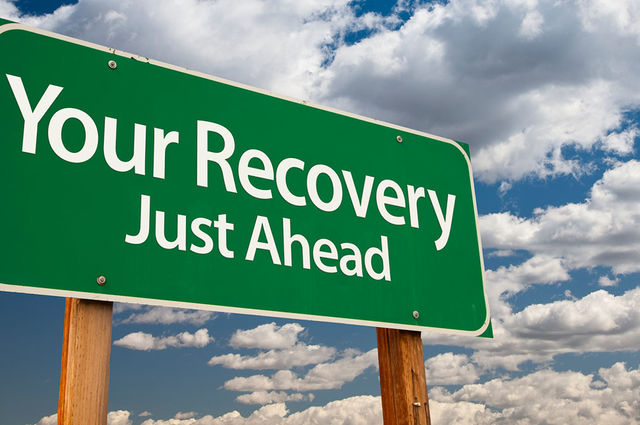A Post-Crisis Top-3 Revenue Management Action Plan
14 experts shared their view
The global hospitality industry has been through every perceivable calamity over the past decades: earthquakes, tsunamis, tornados, major floods, terrorist attracts like 9/11, SARS, global recessions, epidemics and pandemics like SARS, MERSA, ZIKA, swine flu and now COVID-19.
After each crisis the industry came roaring back and I believe it will recover very quickly after the current COVID-19 crisis and prosper like never before.
Naturally, each region and destination has had and will have its own decline and rebound curves as far as hotel occupancy, ADRs and RevPARs are concerned. Recovery post COVID-19 will also be unique to each region, destination and property and will greatly depend on a) the underlying economic conditions in each region and destination, b) the preparedness of each property for the post-crisis period, and c) the lingering impact of short term tactics employed in each market during the crisis.
This down time of low hotel occupancies or property closures is the perfect time for POST-CRISIS planning, revenue optimization action plan development, product and marketing campaign ideations.
The question to the Revenue Management community is, which specific action-items SHOULD be included in a hotelier's Post-Crisis Top Three Revenue Management Action Plan? In addition, please suggest one creative, OUTSIDE-THE BOX idea... something we may not have seen yet in revenue management. Just an idea... big or small.
Three Revenue strategies for a New Normal
Revenue Management Needs to Go Beyond Pricing
I think the paradigm shift we need to take when we look at strategies post-crisis is that this isn't just any crisis that we can easily recover from - the battle against COVID-19 worldwide has triggered reactions that are similar to a war. Hence the pace of recovery and type of recovery that we expect will not be the same as other crises.
- I would recommend that all hoteliers look at the local market for inspiration on how to stimulate that demand. What are their consumer quirks, do you have the product to satisfy that and can you help them adjust and celebrate once this is over. Really spending time to understand the local market psychology and tailoring a staycation/experience that can speak to their needs and desires will make a difference. A simple knee-jerk package built for the sake of looking busy will not bring results.
- Start a dashboard observing the travel rules and COVID-19 statistics surrounding your key source markets or previously emerging source markets. This is important as markets will likely recover at different paces, but if the experts are to be believed, they might be suppressed as COVID-19 triggers new outbreaks once borders opens up. Hence, if a source country is important to you (I would recommend focusing on your top 5-10), you need to understand their restrictions and the COVID-19 response rate to see when there might be some recovery from them. Don't rely on other companies to do your homework for you. Only you know which markets are important to you and understanding their post-crisis behavior is intimately linked to the sentiment and their own government response to it so far.
- I think that our best response to how this situation evolves by looking at the data available to us is not the most creative thing to suggest, but my most creative ideas have always been born of the discipline of just observing the data and unearthing the 'why' and stories deeper within. Since most of us are in some form of lockdown, there's no better time to do that.
As we won't be able to rely on historic data and previous trends for a while, it will be increasingly important to develop a greater understanding of demand-, booking- and cancellation patterns moving forward.
A sophisticated business intelligence tool (and someone who knows how to use it well) which helps you gain new insights into the profitability and opportunity of all aspects of your business is essential in achieving this.This crisis shows us that we can even look beyond total net revenue management. On top of room-, MICE- and F&B (net) revenue we need to be creative and explore non-traditional incremental revenue streams. Especially during the off-season and low demand periods.
And let's ramp up our upselling!
Instead of taking care of every aspect of their current (or pre-crisis) role, Revenue Managers will need to increase their focus on developing creative strategies.
I recommend forming a small team of front desk and reservations agents to support the Revenue Manager in their day to day operations.
Not only will that free up some of the Revenue Manager's time, but it will also train additional members of your team in Revenue Management. And eventually, they could take over when your Revenue Manager moves on.
The hotel industry is cyclical in nature and we witnessed an extended recovery period after the decline that followed the financial crisis in 2008. There has been an increase in room inventory as well and an influx of hotel brands; certain chain scales are now crowded.
Now you have the increased supply, missing demand and possibly transient travel returning sooner than groups (in the short term). I am a strong believer in our economy, in America as a brand and I have no doubt that we will see record occupancy and rates for this industry in the foreseeable future.
As is with every recovery, rate will follow occupancy (not the other way around). Demand drives occupancy, which then supports rate growth. Rate is key as it helps boost profitability. So, as we prepare ourselves on the post-COVID19 recovery; we need to look past RevPAR and focus on profitability. Get the RIGHT rate; that doesn't mean the highest rate, means the most PROFITABLE rate. Embrace all forms of demand; however, prioritize channels that bring you the most profitable rate. Offering free breakfast, complimentary upgrade and credits to certain accounts when those amenities are not on your website needs to stop! Don't push your guests to another channel; give them similar or better offers on brand.com and let them decide where or how they book. Graduate from being a commodity to being an experience.
Experience isn't just about luxury, the experience could mean different things to different segments. At InTown Suites, our targeted renovations are striving to provide guests with fully furnished apartment-style living at an attractive price point. With this simple messaging on being a short term alternative to apartments, a regimented approach to length of stay and channel mix; our properties continue to weather this COVID19 storm. We are proud of our team for delivering these results.
From a revenue management standpoint, 3 things I would prioritize:
- Build a clean and relevant database. Ensure you know your guests, their stay history and have their correct emails and cell phone number. This will come handy when you announce you are ready to open. Even now, reach out to them; connect with them. We are all facing similar situations so let's share our stories. Focus on your niche, focus on your brand and what defines your hotel. Now is the time to reach out to your guests. for us, text campaigns have a better conversion when compared to email campaigns.
- Clean up hotel systems. Is CRS/PMS/RMS configured correctly? Is there a need to reclassify room types? Can we add certain services/amenities to room types that boost conversion? Can we implement some of the post-stay guest survey suggestions that help build our brand story and improve repeat business and create brand stickiness.
- Use data to make decisions. We should (hopefully) start to see some normalcy this summer. From there on, it's all about pace, pricing and promoting your property. Target your channel mix, ensure service standards compliment property rates and graduate to revenue strategy. Sales, distribution, e-commerce, PR and pricing; all need to come together under a cohesive brand marketing strategy. Start planning your goals for each segment and channel. Something to note as a part of this recovery: your guest may decide the price point and experience for their next trip; keep listening...or rather, ask the question when you are ready.
It is important that our recovery is driven by connecting with our guests, based on our brand ethos, our operations, our review scores and most importantly, our well trained and motivated staff. Achieving these will allow us to quickly ramp up occupancy, rates and profitability (I skip RevPAR and suggest RMs focus on profitability).
Our industry is united in this together. Let's focus on the plan and start executing; the time is now! Let's go!
One way to break down the top three revenue strategies is to look at what you need to be doing now, what scenarios you need to plan for in the short term, and then extrapolating how these scenarios may then impact the mid and longer-term, on the understanding that there will never be a specific end date on this, and many new factors we need to come to terms with. (Click here to see a full version of my article)
- A strategy for now - Managing cancellations remains the focus for the immediate short term, the volume of which will depend upon where you are located and the current stage of the spread of COVID-19 and is likely to remain the case until there is more certainty over how to manage the process from lockdown through to the new "normal". (Click for more)
- A strategy for re-opening with social distancing - On removal of lockdown restrictions life will not immediately return to what we would consider as normal. When planning strategies for re-opening, budgets need to be re-written with realistic targets. What does that mean? You may find that there are restrictions on the number of people allowed in any one place at any point in time. This may also restrict the number of rooms put back into inventory. If your hotel has a heavy reliance on F&B, social distancing measures will likely mean fewer covers. Re-work the figures and use multiple scenarios.(Click for more)
- Strategies for looking further ahead - This becomes trickier to anticipate. Which reports will be helpful? What data do you need? More than ever you need to communicate to your executive team what is going on. Work out which new segments you will be dealing with. What impact will management of re-infection have and how will this materialize? Depending upon travel guidelines, "Quarantine" may be considered as a new segment especially if the hotel is near an airport, and restrictions require incoming travelers to isolate. Consider how your hotel may be positioned to support patients coming out of care, where the road to recovery for some will be a long one. Consider offering Key Worker packages to support those that are working through this, to get rest and recuperation at affordable levels.(Click for more)
Finally, a (not so) off the wall idea. People who have suffered from COVID-19 have a long recovery both mentally and physically. Consider re-structuring your health offering, to show you are aware of how we move on from this, covering gentle exercise, expertly crafted wellbeing programs, re-configuring gym equipment to support recoverees, adjusting menus, or allocating ground floor rooms to people who may have longer term breathing difficulties.
As we know, every day has changed the way we think about tomorrow so my top 3 will probably change multiple times as we continue to evolve and start to come out of this., but today here are my top three action items for myself and my team.
- First, we need data. We need to start tracking new bookings by channel and segment compared to last year so we can determine when to start opening up hotels and when to start spend marketing dollars again.
- Second, we need to use that data to determine what channels we invest our marketing dollars in to get our message in front of the people who are traveling. We need to throw away our old marketing plans and focus on the segments and channels that are actually traveling. We may find that this is a totally new segment of traveler for our hotels.
- Third, we need to maintain rate integrity and capture direct bookings vs. being reliant on the OTAs. It's OK to come up with some creative, fenced discounted offers, but let's market them to the right audience and only allow them to book direct.
I'm not sure I'm ready to talk about outside-the-box ideas yet, but what i do know is that things will not be the same and we need to start thinking differently.
As a revenue manager, it is important to keep close tabs on pace data and more specifically where the pace is coming from. The demand may not be from the traditional channels as business and group travel may be further delayed in the recovery. I would also ensure you look for opportunities in your backyard. Perhaps there is an extended stay package you can put in place for those that have been exposed and want to ensure they do not expose their family. Finally, having keep your eye on pricing and channel production. You can get creative with value add or packaging without dramatically dropping your overall ADR.
As far as out-of-the-box thinking it will be important to work closely with the marketing and sales folks in identifying specific customer segments that will be more likely to come back sooner, then put action plans in place to ensure you attract those customers. Example: When it is safe, I would imagine there will be plenty of pent up demand for families wanting to reunite. Creating a "safe" reunion package would be an attractive option to have in your arsenal.
Here are the three main action steps in revenue management in the post-crisis period:
1. Break down the silos! The post-crisis requires a completely new approach to revenue management (RM), not going back to the old ways of doing RM.
The post-crisis travel planning process will be even more challenging and complex, which will force hoteliers to find an integrated strategy to engage, acquire, service, and retain the tech-savvy travel consumers - both leisure and business - across multiple digital touch points and across all digital channels and devices. This new complex travel customer journey constitutes a singular planning, conversion, and retention lifecycle that requires a singular (read: seamlessly integrated) approach. It does not tolerate silos in departments, technologies, services, and engagements.
This new reality necessitates the creation of “a single-minded team” at the property: The Revenue Generation Team, consisting of the RM, S&M and CRM specialists, working together to acquire, engage, and retain guests; optimize performance; and increase revenue, especially direct bookings.
2. Develop a two-prong Revenue Management strategy:
- Short-term strategy (now through 6 months post crisis), focused on leisure and unmanaged business travelers from drive-in and short-haul feeder markets. Short-haul feeder markets will be the first to “wake up” in the immediate post-crisis period. People are better informed about nearby destinations and can better assess the post-coronavirus situation there, and hopefully, resume traveling there if they believe the situation is under control. Focusing your marketing efforts on your property's drive-in/short-haul feeder markets in the post-crisis period makes all the sense.
- Long-term Strategy (now through 12 months post crisis), focused on your core market segments: corporate travel corporate groups, SMERFS, special occasions, weddings, distribution partners in long-haul feeder markets, etc. You should continue to communicate to these customers throughout the crisis and after it's over and provide clarity and information about the property's status of the property and the situation in the destination, the fact that post-crisis the property is fully functional and better than ever, etc.
3. Invest in revenue management technology. The COVID-19 crisis marks the end of the Excel Spreadsheet as a revenue management tool. Now is the time to convince management and ownership that only a cloud AI-powered revenue management system (RMS) can help the property maximize revenues and successfully compete in the super complex post-crisis marketplace.
Today's RMS technologies have advanced to a level unthinkable 10, 5 even a year ago and have become real-time, automated price-and-strategy recommendation engines, powered by AI and ML, supported by dozens and dozens of APIs with real-time data feeds with ORM (Online Reputation Management) customer sentiments, CRM RFM Values, Digital marketing's intent data, etc. An RMS in place, coupled with an experienced revenue manager, can lift room revenues by 20%-40%.
With less than 10% of independent properties having an RMS in place today, your hotel will gain a major competitive advantage and will be able to overcome losses from the current occupancy slump or closure.
Even if you were in a leadership position following September 11th, no hospitality professional has ever seen conditions like those we are living through today. Still, there are lessons we can learn from past events that will help us to avoid repeating costly mistakes. From a grey-haired Revenue Manager who used to think he had seen it all, here are a few suggestions:
- Tell the world you are ready. This includes the fact that you are open and how your hotel is prepared to host guests appropriately under the current circumstances. In today's environment, everyone's first priority is to be safe, and if you can't convey supreme confidence, you're dead in the water. Put the information front and center, where it is impossible to miss.
- Don't dump your retail rates. Lower prices shift demand, they don't create it. Today's problem is that there is no demand, and no matter how good the deal, people who don't have to travel are not going to. Past events have taught us that markets that decline more now take longer to rebound. Don't be “that guy” who starts the free-fall, and if someone else does, don't follow. Hopefully, they'll figure out that they are leaving rate on the table and snap out of it. If not, let them fill with junk, and if everyone in the market does it, I'm sorry.
- Adopt a sales-oriented attitude. The demand that does exist is specific and it can be served with attractive prices and fences that will alleviate the need to lower retail rates. Develop special offers, specifically targeted at the needs of these travelers. Also, if this is your first downturn as a leader, make friends with the sales department. They are going to be important for a good while to come.
Outside the box: Use the extra time you have now to reinvent, both yourself and the business. Personally, consider learning something like Tableau and finally banishing Excel from your toolbox. For hotels, there's no better time to dump your legacy PMS and go cloud-based than when your hotel is running 4% occupancy. Many hospitality technology providers are offering very friendly terms to hotels for the rest of the year, so it's the perfect time to test that really cool piece of pricing technology you've had your eye on for a while.
Wise revenue managers will be using this period of relative booking inactivity to focus on two areas in tandem:
- Managing the new day-to-day, whether that includes maintaining open doors, operating a reduced number of floors or managing through temporary closure. The focus is on serving existing guests, maintaining the hotel's reputation, avoiding dropping prices, and monitoring source markets and channels to mitigate some of the effects of the downturn; and
- Planning for the recovery. In many ways, they're interlinked. We don't know what shape that recovery will take or when it will come but assessing data trends will give some indication as to which path you're on and what you should focus on.
My first tip is to go back to basics: use this time to review your tech-stack; access to real-time forward-looking data is essential when things are changing daily. What are you using and what is out there in the market that could be more efficient? Also, look out for the many free insights that are currently available - often in the format of webinars - but there's other web-based content and recaps too. In a similar way to the virus impacting different regions at different times, so too are different markets affected at different times and reacting to various rules and unique circumstances, depending on their feeder markets.
When it's finally “business as usual” again, you can exploit some of the opportunities you might have missed in the past from being too busy to examine your data with a fine-toothed comb. This could bring about new efficiencies and help regain revenue when the time is right.
But what do we mean by “business as usual”? Demand will return, even if we don't know exactly when. But will your activities ever be quite the same? Perhaps not, if the new avenues you go down during this crisis period prove to be fruitful ones.
This brings me on to my second tip: you should build momentum on the new opportunities explored above, which can be run in parallel with your older, more tried-and-tested ones. If your hotel is closed, stay closely in touch with where your market is in the cycle, so you can re-open inventory at the right time. If your hotel is open, how are your current customers different from those who you had expected to be staying at this point in time - and is there a way to ensure you have your fair share of these customers?
My third tip is to approach revenue management more from a commercial 'team' perspective. Encourage the revenue team to talk to your sales, distribution and marketing counterparts so that combined strategies are better aligned. If some of your colleagues have been furloughed, there will be fewer of you to cover the different departments, so put a broader commercial hat on.
It's all about spotting and reacting to the right opportunities. This brings me to my novel idea: look for tools that do more than measuring the past. Focus on those that provide top-of-funnel demand indicators. Make the most of this downtime to investigate or liaise with colleagues in other departments, such as marketing, who might be working on similar projects to capture early signs of market recovery. There are tools out there that capture these forward-looking data-points, bringing those crucial insights together.
While none of us have any idea when the virus outbreak will be contained and when currently closed hotels will be allowed to open again, we can and should get ready for the day which will eventually come. At the same time, we can't plan too early without proper data and information.
- Action A: Resist the temptation to hand over your inventory, promotions and rate strategy to the OTAs. In past downturns, the industry has used the distribution power of the OTAs to capture as much business as possible as quickly as possible. The current situation could provide the chance for a reset of that dependency. Make sure that ownership has approved that strategy, is willing to wait for a longer return. Watch the behavior of competitors to not get left behind.
- Action B: Forget your knowledge of booking pace, seasonality of your market in the short-term. Historic trends no longer apply. Discuss with RMS providers on how they are going to change the algorithms driving their systems.
- Action C: Focus on local/ drive markets while consumer confidence builds over time. Expect that group business and corporate travel will take longer to recover. Maximize your CRM. Ensure that your Sales & Marketing teams shine - while recovery will take a while, IBT, Wholesale Sales can drive revenue that is fenced to a certain degree
It's true that the hotel industry has been through many storms. However, it has never seen a black swan event like this one. As the leading brands expect revenues to decline by an unprecedented 70% or more, millions of people are out of work and we are still 3-6 weeks away from the peak of the crisis. Depending on the country or region, it's difficult to discuss actions to take for a recovery which might not start to happen in earnest until Q4 2020 or beyond. I do see some common plans you can pursue independently though, based upon where your hotel is located or when the recovery will take place:
- Because domestic and local travel could be the first area to recover, consider how you'd engage with these travelers. Are you ready to welcome them? Are you regularly communicating with potential local guests? What are you doing to address safety concerns from guests staying in your hotels?
- Be creative in offering added value packages. People will look for short distance leisure destinations that provide good value for the money. While customers will be price sensitive, they (we) will all look forward to spending some time and money out of the house after weeks of quarantine.
- While it's very tempting, stay away from aggressive requests of inventory availability and pricing cuts. Rethink your distribution strategy and avoid heavy dependency on third party channels. At the first sign of recovery, they will certainly come running to offer many incentives (not always to the benefit of the hotels) to “stimulate demand” and “help you drive occupancy.” However, the time is now to lay the foundation to drive direct business. Make sure all your marketing assets are ready to launch when restrictions are lifted, you have a sound social media engagement strategy and are focusing on direct business first. Make sure you stay engaged with prospective guests/markets throughout any hotel closures.
Creative idea: Pursue and aggressively court government, health authorities and emergency-related business to see you through the next few months. We have seen some very successful initiatives with hotels getting significant room nights for a variety of purposes, including isolating returning citizens, providing accommodation to stranded tourists and/or quarantine measures.
This post-crisis plan needs to be very asset-specific. It will be critical to determine what works to your advantage.
- Fully audit all your marketing assets, determine what can still be used post-crisis and what needs to be added. Become hypersensitive to sub-segmenting your market data. Define which markets and industries will recover the quickest, for example, assets in drive markets should recover the quickest. Assets that are group dependent should continue to be in contact with their clients, developing goodwill, so that those customers are ready to return to doing business.
- Help alleviate any fear of travel for those who are still wary to travel and make them feel more safe and healthy. You must discreetly address this issue in your messaging and execute it. This virus may permanently all some people's definition of how important clean is.
- While the crisis is going on, become a leader in your community for the right reasons. Donate, offer food delivery services, this will be remembered post-crisis.
I would suggest that a great idea at this time is to use the enforced break to re-envisage what you want your hotel to be. Whilst the operations are running, it is often difficult to stop and think about this vision. More than that, it is hard to put things in place on a moving vehicle. To use this time for learning, if you are not a revenue management professional, I can recommend this course from ESSEC on Coursera.
Also, for smaller hotels, I have written this book that summarizes some of the best ideas from various experts.
In particular, now could be the time to look at the software stack. What PMS would you really like to have? I would say that unless you have an open, cloud-based PMS you are storing up problems for yourselves in the future. Now seems the perfect opportunity to change. Which booking engine, which marketing, which upselling software do you ideally want? Many will have offers for new clients now. At RoomPriceGenie, we make simple Dynamic-Pricing/Revenue-Management Software. The algorithm is unique in that it works mainly on market-positioning. It will be perfect for coming out of this crisis, where you don't want to go too low (ruin the market) or too high (not get bookings). And to help the hotel industry bounce back, we are offering a totally free service until the end of the year. Contact us for details. Previously, good times enabled hotels to become complacent. But in these times, coming back better than ever will be crucial. Now is the time to think about how to achieve that.
Top 3 for me:
- Get your house in order and reset up your distribution and data set up. Now is the time.
- Stop being fascinated with last years pacing and trend. the new world order is short trends.
- Think macro, not micro as dominating industry trends.














